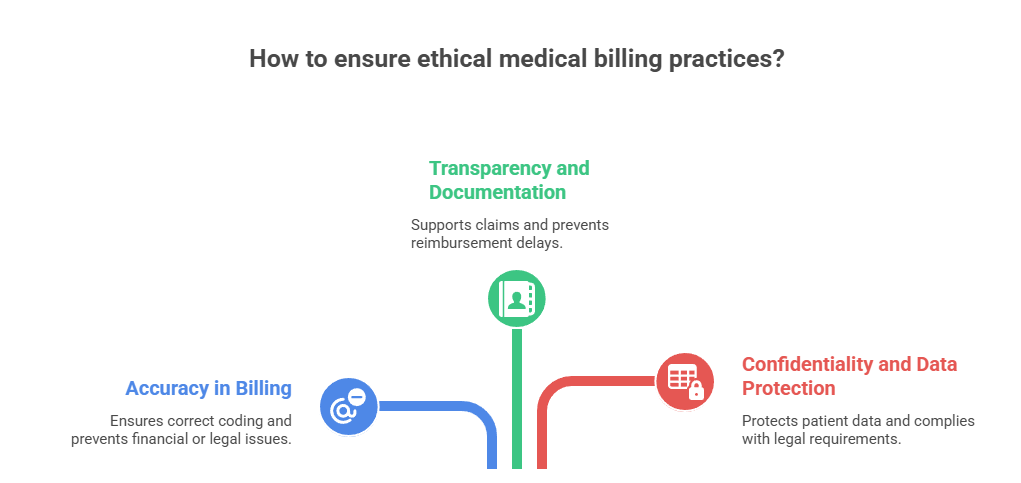Medical Billing and Coding Certification in Michigan: Complete Guide for 2025-2026
Michigan’s healthcare system spans academic hospitals in Ann Arbor, major health networks in Detroit, and regional centers in Grand Rapids and Lansing. With a mix of urban and rural providers, the state demands coders who can manage both high-volume hospital claims and specialized rural billing. Unlike Mississippi or Iowa, Michigan’s coders often balance payer policies from Medicare, Blue Cross Blue Shield of Michigan, and Medicaid.
Graduates from AMBCI’s dual-track program are fully prepared with AAPC CPC® + CPB® certifications, 200+ specialty modules, and 500+ case studies. This training ensures Michigan coders meet the same rigorous hiring standards as peers in Massachusetts and Maryland.
Michigan’s Demand for Certified Billers & Coders
Michigan’s healthcare sector is balancing two worlds: large-scale urban hospitals and rural community providers. Employers in Detroit require coders with expertise in high-volume claim scrubbing and familiarity with denials prevention strategies similar to those outlined in denials management guides. Meanwhile, rural areas depend on coders who can adapt to telehealth billing, similar to practices in Maine.
Coders in Michigan also need to understand the state’s payer mix: Medicare, Medicaid, and BCBS MI. This demands advanced skills in accounts receivable management (AR reference) and payer-specific compliance (fraud and abuse terms). Employers expect proficiency with ICD-11 as they transition toward new global coding standards.
Michigan’s diverse specialty demand includes oncology, orthopedics, and pediatrics. Coders trained in CPT directories and surgical coding stand out. Hospitals like Henry Ford Health and Beaumont rely heavily on certified specialists to reduce errors and protect revenue streams.
| Metric | Michigan Snapshot | Hiring Signal |
|---|---|---|
| Entry-Level Salary | $37,500 – $44,000 | Accuracy in ICD-10 coding |
| Mid-Career Salary | $48,500 – $58,500 | Experience with appeals |
| Senior Salary | $62,000 – $77,000+ | Audit leadership roles |
| Top Hiring Cities | Detroit, Ann Arbor, Grand Rapids | Hospital systems |
| Preferred Credentials | CPC® + CPB® | Standard requirement |
| Clean-Claim Rate | > 95% | Scrubbing expected |
| Denial Rate | < 7% | Appeals management |
| Telehealth Exposure | High rural reliance | POS coding crucial |
| Value-Based Care | Rapidly expanding | MIPS/QPP required |
| Payer Mix | Medicare, Medicaid, BCBS MI | Complex policy fluency |
| Specialty Hiring | Oncology, orthopedics, pediatrics | Niche coders in demand |
| Audit Frequency | Quarterly & random | Compliance necessity |
| Remote Roles | Medium–High | National employers |
| Program Timeline | 8–16 weeks / 3–6 months | Flexible schedules |
| Top Employers | Beaumont, Henry Ford, U-M Health | Dual cert required |
| Audit Readiness | High | Coders expected to assist |
| Emerging Tech | AI & automation | Adoption accelerating |
| Special Training | Fraud prevention, telemedicine | Hiring edge |
| Reimbursement Benchmarks | >$110k clean claims/month | Coders drive KPIs |
Michigan-Specific Certification Requirements
Michigan has no state exam, aligning with Delaware and Kentucky. Employers demand national CPC® + CPB® credentials.
Coders must demonstrate expertise in audit readiness and fraud detection. Michigan’s hospital systems often conduct quarterly audits, requiring coders to collaborate with compliance officers. Resources like audit trail guides and financial audit references are key prep tools.
Employers increasingly expect graduates to master telemedicine coding, coding software systems, and clinical documentation integrity. Coders who are fluent in value-based care documentation will have the strongest edge.
AMBCI’s Dual CPC® + CPB® Program for Michigan Students
AMBCI prepares Michigan students with a curriculum that blends AAPC exam prep (CPC study guide) and CCS specialist study.
Students learn coding compliance (compliance dictionary), advanced specialty coding (bariatric coding), and denials prevention tactics (denials prevention). Training also integrates RCM mastery and electronic claims processing.
Graduates leave with confidence to handle audits, appeals, and payer negotiations across all Michigan healthcare systems.
Which career outcome matters most to you?
Career Outlook in Michigan
Michigan coders enjoy competitive salaries: $37,500 for entry-level roles, with seniors exceeding $77,000. This aligns with earnings in Massachusetts and Maryland.
Career pathways typically begin as entry-level coders, transitioning into auditors, compliance specialists, and RCM managers. Employers in Michigan value coders who can integrate quality assurance, manage HIPAA compliance, and apply skills in telemedicine billing.
Remote opportunities are steadily rising, allowing coders in Michigan to compete for national roles, mirroring opportunities available to coders in Arizona and California.
FAQs: Medical Billing and Coding in Michigan
-
-
Entry-level coders earn $37.5k–$44k, with seniors exceeding $77k. Comparable to Massachusetts and Maryland.
-
Yes. They are recognized across hospitals like Beaumont and Henry Ford, with parity to states like Maine and Mississippi.
-
8–16 weeks or 3–6 months, just like Alabama and Kentucky.


